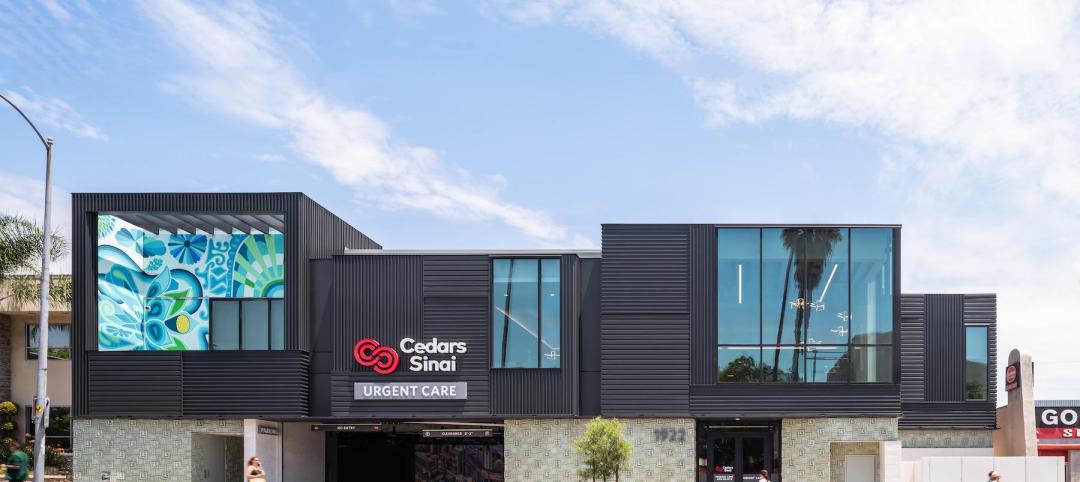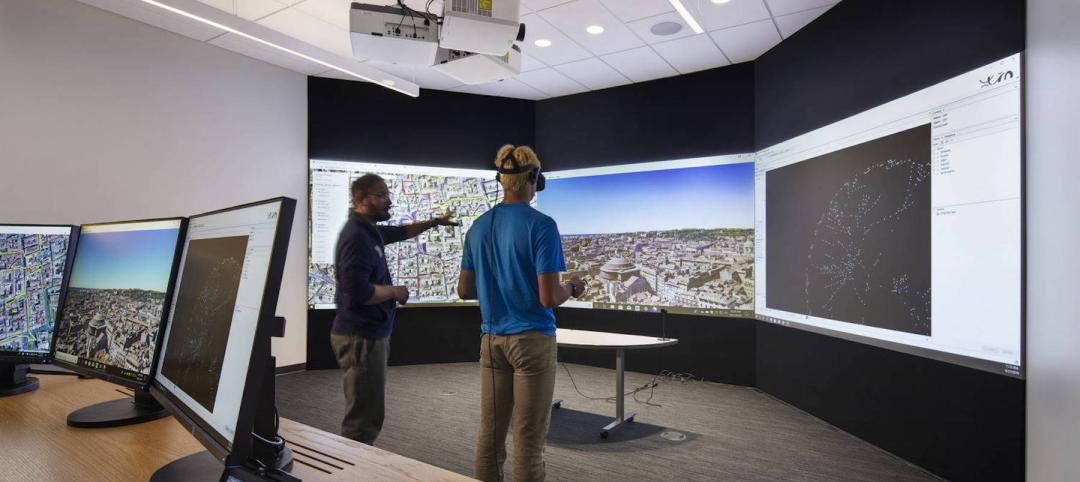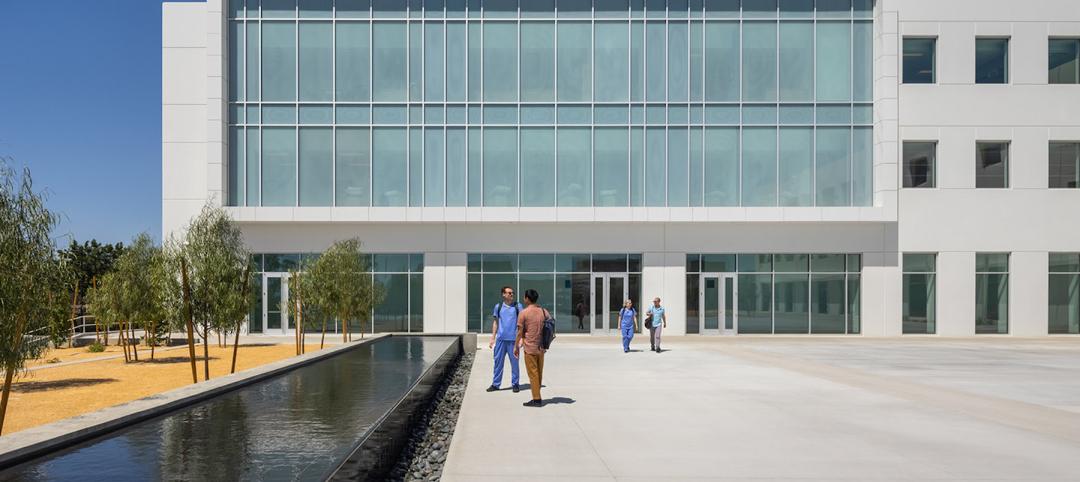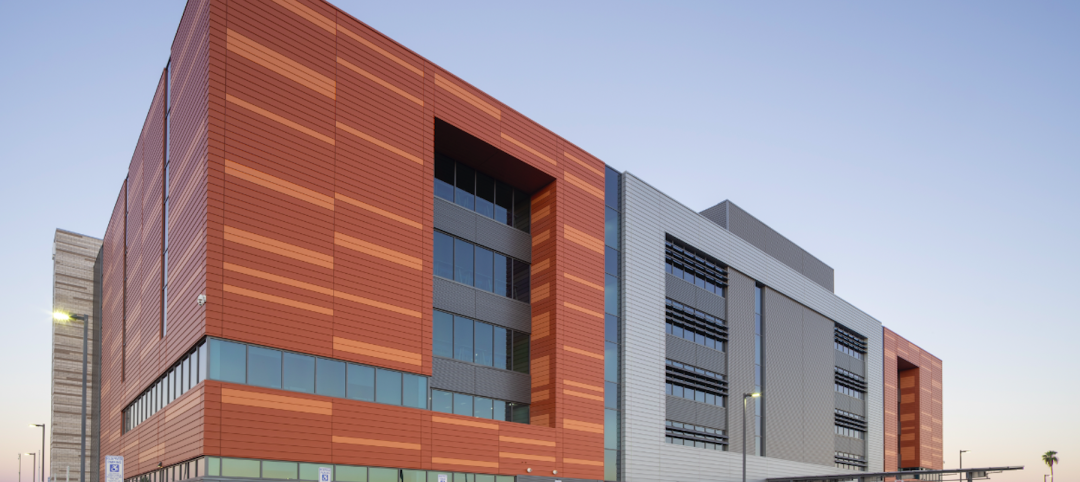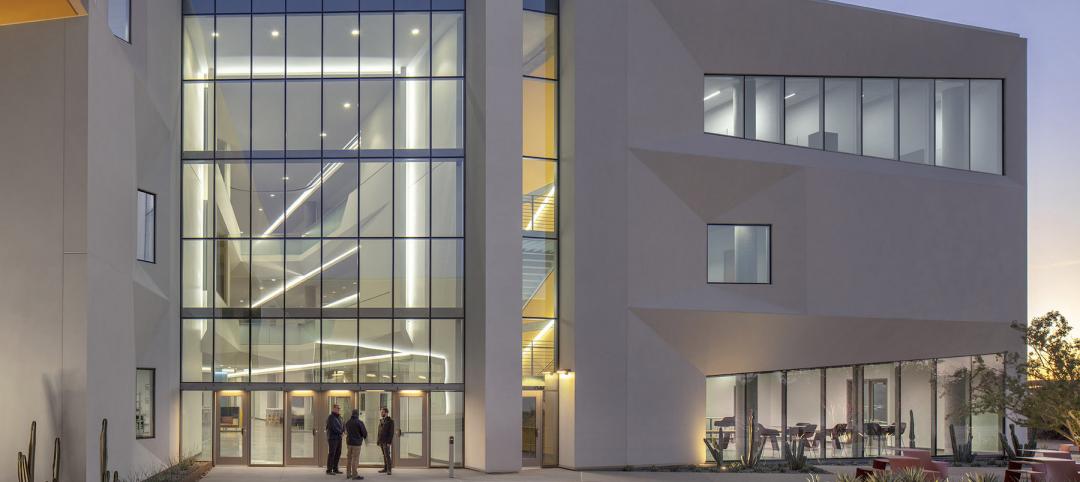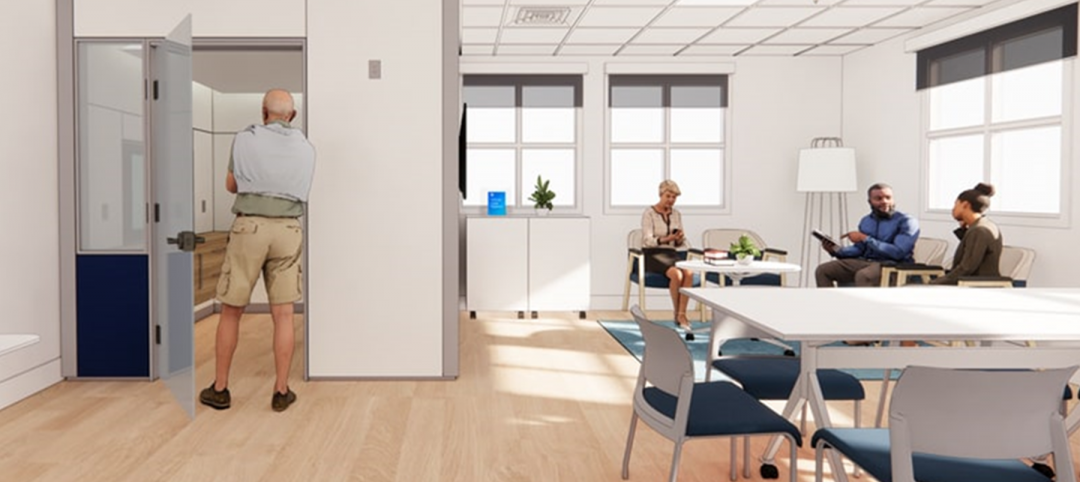More than two-thirds of U.S. households own at least one pet, and more than half own dogs. The American Pet Association estimates that Americans spent a record $99 billion on pet-related expenses in 2020, from food and toys to vet services. The animal care sector is big business that at least one AEC firm has been tapping into for a while.
CRB, headquartered in the heart of the so-called animal health corridor in Kansas City, Mo., has cultivated a specialty for working on biotech facilities that focus on the animal world. In that capacity, CRB has collaborated with a several other AEC firms, such as ESG and Power Construction on Fulton Labs, a life sciences campus in Chicago’s Fulton Market neighborhood. The campus hosts 724,714 rentable sf of dedicated lab and office space with an additional 57,000 sf of top-tier amenity space including a community garden, wellness center and stunning rooftop lounge.
Eric Danielson, CRB’s Director of Business Development, says that growth in this industry sector is coming from several directions that include the post-COVID study of monoclonal antibodies in animals. He adds that there’s also a lot of interest in gene and cell therapies, especially for companion pets. And on the food side, manufacturers are exploring “fresher options” that consumers are demanding and are willing to spend more on. These include alternative protein food types and products that can be sold less expensively at retail.
Danielson says his company is seeing more manufacturers take a holistic approach to animal health by, for example, getting into food products with pharmaceutical elements embedded into the ingredients.
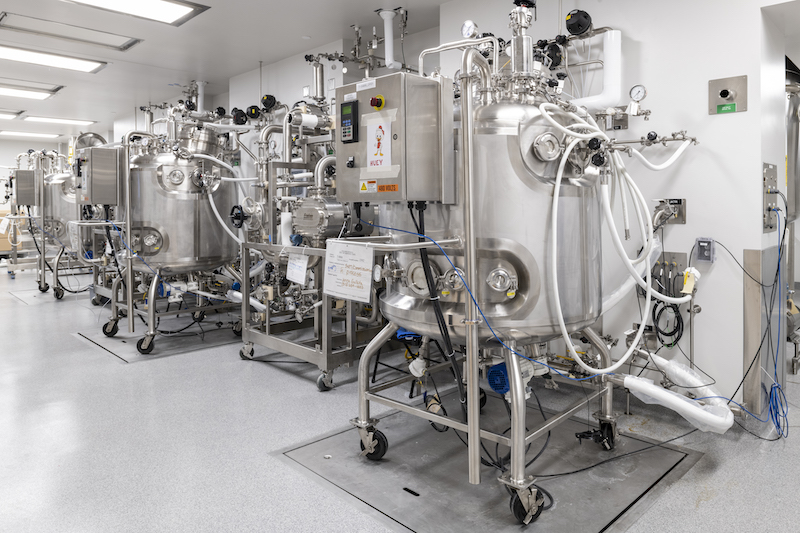
CRB provided design services for this new 96,000-sf animal health biological production facility used to manufacture aerobe bacterins and viral antigens.
MULTIPLE REGULATORY BODIES
Animal care is a highly regulated business that, in the U.S., is overseen by the Food & Drug Administration and the Department of Agriculture. CRB has also worked for clients in Europe, South America, and Asia, each with its own rules and regs. So a big part of CRB’s job, says Danielson, is to make sure that its clients’ projects adhere to their markets’ regulatory requirements.
CRB relies mightily on reality capture, through BIM and Virtual Design and Construction (VDC) to, in Danielson’s words, “provide a digital understanding of the design for the day-to-day user.” These tools also reduced the need for physical on-site visits during the coronavirus pandemic, and are getting clients’ projects up and running faster at a time when speed to market is a critical competitive component.
IPD PRACTITIONER

A CRB employee on-site during the construction phase of a ONEsolution project for a major global animal health company.
To that end, within the past year CRB has rolled out SlateXpace, a platformed modular solution, primarily for multimodal facilities, whose plug-and-play components can be deployed without needing to shut down other parts of the building. “It reduces down time,” says Danielson. (A short video that illustrates how this works can be viewed here.)
CRB is also a proponent of Integrated Project Delivery (IPD) through its ONEsolution approach that brings together the company’s team of designers, engineers, and other experts to control quality, cost, and scheduling by focusing on lean project delivery based on core principles that optimize the client’s capital investment through improved execution, with shared risks and rewards.
Danielson—whose 20-plus years in the AEC space included stints with J.E. Dunn and as a municipal planner—says that his firm strives to avoid “falling into the trap of repeating the same production design standards. This limits innovation.” It is also always looking for ways to eliminate steps for a project to achieve regulatory compliance.
With regard to innovation and fresh thinking, a few weeks ago CRB elected four new members to its Board of Directors, three of whom are from outside the company, its first election of external members. "Together, their insights and fresh perspectives will challenge and strengthen us, resulting in continued high value for our clients and rewarding experiences for our employees," said Ryan Schroeder, CRB’s President.
The outside board members include Tim Hannan, Executive Vice President and CFO of New-Press & Gazette Company; Sandy Price, a retired Senior Vice President of Human Resources at Sprint; and Bob Uhler, a philanthropist and former Chairman of Great Lakes Dredge and Dock.
Related Stories
Daylighting | Aug 18, 2022
Lisa Heschong on 'Thermal and Visual Delight in Architecture'
Lisa Heschong, FIES, discusses her books, "Thermal Delight in Architecture" and "Visual Delight in Architecture," with BD+C's Rob Cassidy.
| Aug 16, 2022
Cedars-Sinai Urgent Care Clinic’s high design for urgent care
The new Cedars-Sinai Los Feliz Urgent Care Clinic in Los Angeles plays against type, offering a stylized design to what are typically mundane, utilitarian buildings.
| Aug 15, 2022
IF you build it, will they come? The problem of staff respite in healthcare facilities
Architects and designers have long argued for the value of respite spaces in healthcare facilities.
AEC Tech | Aug 8, 2022
The technology balancing act
As our world reopens from COVID isolation, we are entering back into undefined territory – a form of hybrid existence.
| Aug 3, 2022
Designing learning environments to support the future of equitable health care
While the shortage of rural health care practitioners was a concern before the COVID-19 pandemic, the public health crisis has highlighted the importance of health equity in the United States and the desperate need for practitioners help meet the needs of patients in vulnerable rural communities.
Healthcare Facilities | Aug 1, 2022
New Phoenix VA outpatient clinic is one of the largest veteran care facilities in the U.S.
The new Phoenix 32nd Street VA Clinic, spanning roughly 275,000 sf over 15 acres, is one of the largest veteran care facilities in the U.S.
Building Team | Jul 12, 2022
10 resource reduction measures for more efficient and sustainable biopharma facilities
Resource reduction measures are solutions that can lead to lifecycle energy and cost savings for a favorable return on investment while simultaneously improving resiliency and promoting health and wellness in your facility.
Healthcare Facilities | Jun 22, 2022
Arizona State University’s Health Futures Center: A new home for medical tech innovation
In Phoenix, the Arizona State University (ASU) has constructed its Health Futures Center—expanding the school’s impact as a research institution emphasizing medical technology acceleration and innovation, entrepreneurship, and healthcare education.
Healthcare Facilities | Jun 20, 2022
Is telehealth finally mainstream?
After more than a century of development, telehealth has become a standard alternative for many types of care.
Codes and Standards | Jun 14, 2022
Hospitals’ fossil fuel use trending downward, but electricity use isn’t declining as much
The 2021 Hospital Energy and Water Benchmarking Survey by Grumman|Butkus Associates found that U.S. hospitals’ use of fossil fuels is declining since the inception of the annual survey 25 years ago, but electricity use is dipping more slowly.




